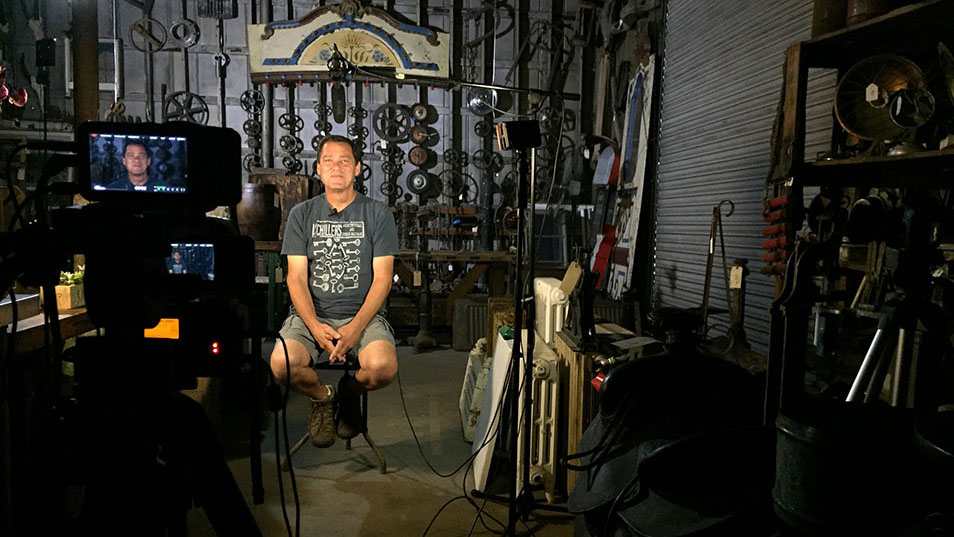Contact us
401 W. Kennedy Blvd.
Tampa, FL 33606-13490
(813) 253-3333
Christopher Boulton’s Sunscreen award-winning short documentary “Progress” almost didn’t happen.

Behind the scenes of filming the short documentary “Progress,” Larry Schiller is interviewed. Photo by Eric Langhoff ‘15

The item was initially described to Boulton as a “wine pump” because it was found on a French vineyard. Photo by Langhoff
Langhoff, who graduated with a dual degree in film and media arts and entrepreneurship, first met Boulton as a sophomore in his COM 303 Studio TV course. They’ve since worked together on five different projects, one of which, Life After Life, was supported by an Honors Program fellowship for Langhoff in his junior year.
Have a story idea? Contact Brianna Kwasnik, Digital Content Editor/Writer
Read more UT Life stories.
Subscribe to News and UT Life.
More UT News